
My children’s screams could be heard from the other room. I rushed in. Tears were running down both of their faces. The two looked at me and immediately started blaming the other for the fight. I held up my hand and told them to stop.
After calming them, I listened to each person tell his/her side of the story. Together we worked to come to an agreement. When I began my mothering journey I didn’t know how much of my time would be spent as an intercessor.
According to the dictionary, to intercede means “to act or interpose on behalf of someone in difficulty or to attempt to reconcile differences between two people or groups; mediate.”
Did you know that every single person needs an intercessor? Someone needs to help us reconcile ourselves to God (Romans 5:10). Because of sin, we all stand before God unworthy to have a relationship with Him or enter Heaven.
In God’s great love, He sent His Son, Jesus Christ, to be our intercessor. Jesus, through the death on the cross, provided a way for us to come to God. Christ took the punishment we deserved and then rose to new life. Today, Jesus sits beside God in Heaven, declaring to God that those who trust in Him are free to come to God. The New Testament is filled with verses that convey this idea.
Who then is the one who condemns? No one. Christ Jesus who died—more than that, who was raised to life—is at the right hand of God and is also interceding for us. - Romans 8:34
My dear children, I write this to you so that you will not sin. But if anybody does sin, we have an advocate with the Father—Jesus Christ, the Righteous One. - 1 John 2:1
For there is one God and one mediator between God and mankind, the man Christ Jesus. - 1 Timothy 2:5
The authors of the New Testament are not unique when portraying Jesus, the Messiah, as an intercessor. In the Old Testament the idea of a mediator, or a “go-between” from God to man was pictured in a variety of ways.
As the Jewish nation was being formed, God raised up men to be intercessors even then. If a mediator or intercessor is one who speaks to God on behalf of man, we can see at least six people who played unique roles as mediators. Let’s take a look at six examples of intercessors from the Old Testament and how they point to Jesus.
Photo Credit: ©Getty Images/Daniel Christel
1. Joseph
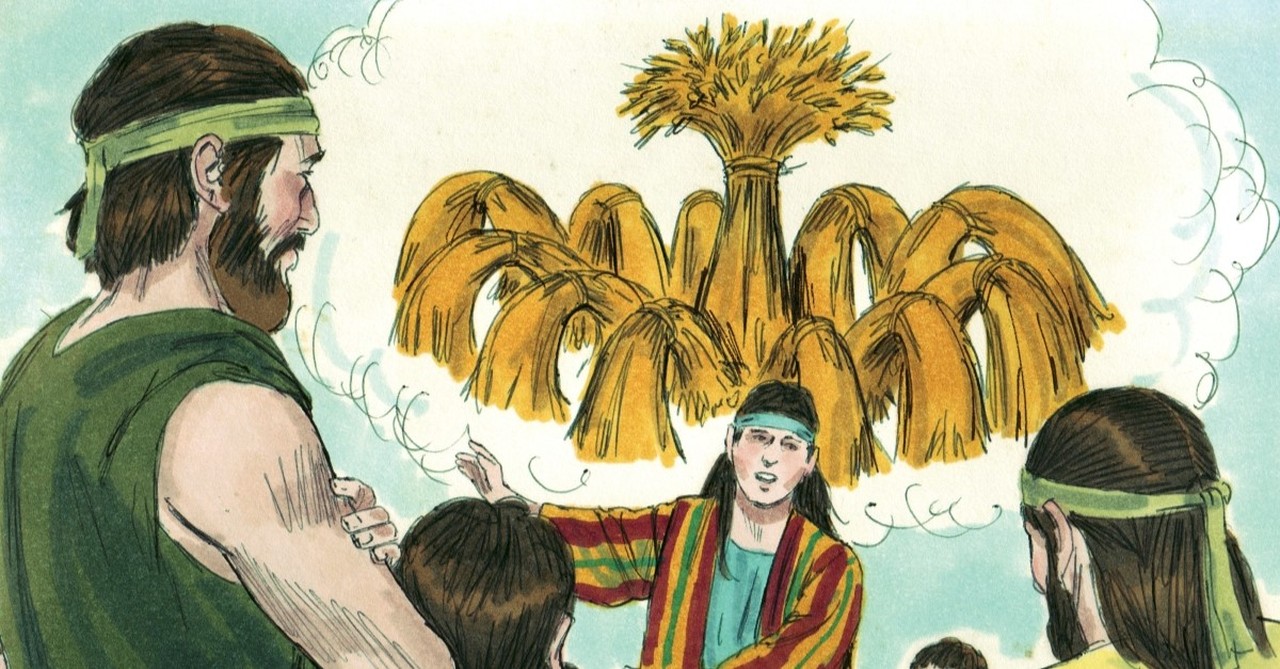
1. Joseph
SLIDE 1 OF 6
As the sons of Jacob, or Israel, were growing up we found this young boy as the key figure of the family. His story takes up almost the last half of the book of Genesis. Joseph’s story mirrors Jesus’ in many ways. Joseph was rejected by his brothers, beaten, lied about, and even falsely accused. Instead of ending up on a cross, Joseph ends up on top. All of the evil Joseph endured, eventually led Joseph to be a savior for his people.
Joseph gives us a picture of forgiveness, reconciliation, and provision. When Joseph’s brothers were hungry and starving, they came to find bread. Even though his brothers had rejected and sold him into slavery, Joseph ended up forgiving them. In the end, Joseph recognized that God sometimes allows evil to accomplish good (Genesis 50:20). Jesus also provides for us, but the evil of the cross had to take place first.
Photo Credit: ©Getty Images/BibleArtLibrary
2. Moses
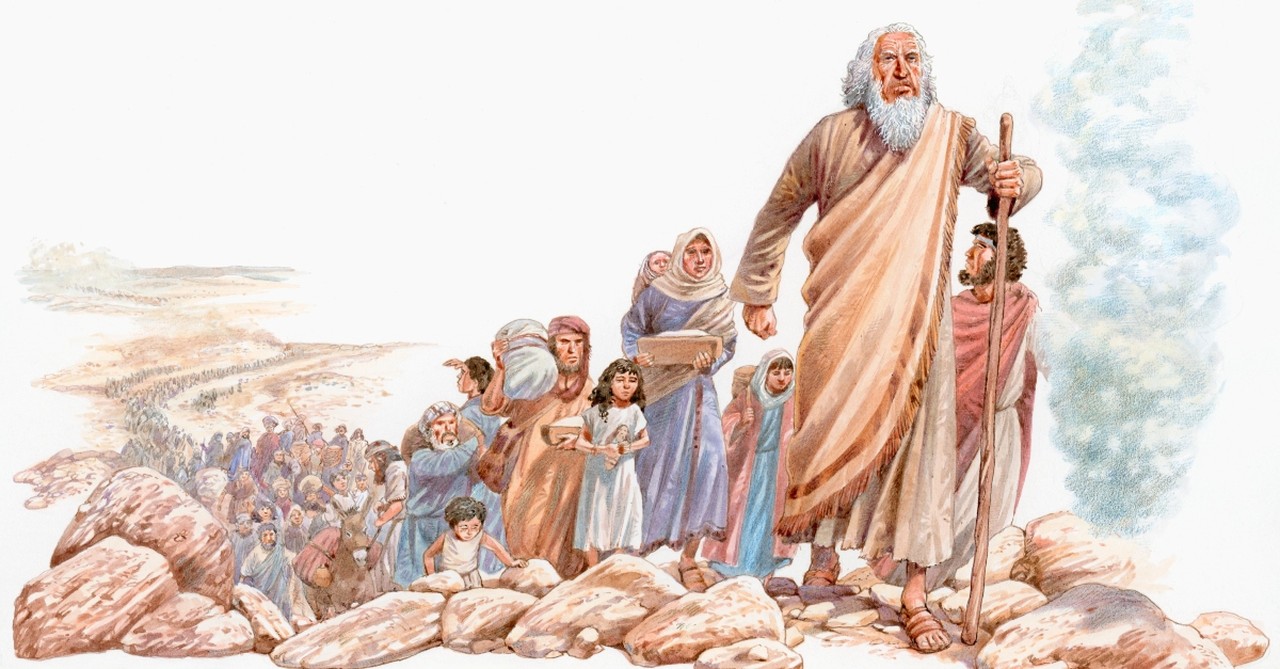
2. Moses
SLIDE 2 OF 6
One of the greatest men to ever live was Moses. I might be a little biased, as I’ve spent years studying and writing about Moses. He was rejected by the people and escaped to the wilderness, Moses was called by God to go back to Egypt to free the Israelites from their slavery. Through the power of God and the wisdom of the law we see a picture of Jesus.
Moses stood up on the mountain after leaving Egypt and received God’s law. The people left at the foot of the mountain continued to rebel against God. Exodus tells us over and over again how Moses would pray and intercede for the people. Even though we are children of God, saved and forgiven, we still fall into sin. Jesus sits beside God and intercedes for us, just as Moses did, and asks God to accept His sacrifice to cover our sins.
Photo Credit: ©Getty Images/Dorling Kindersley
3. The Priests
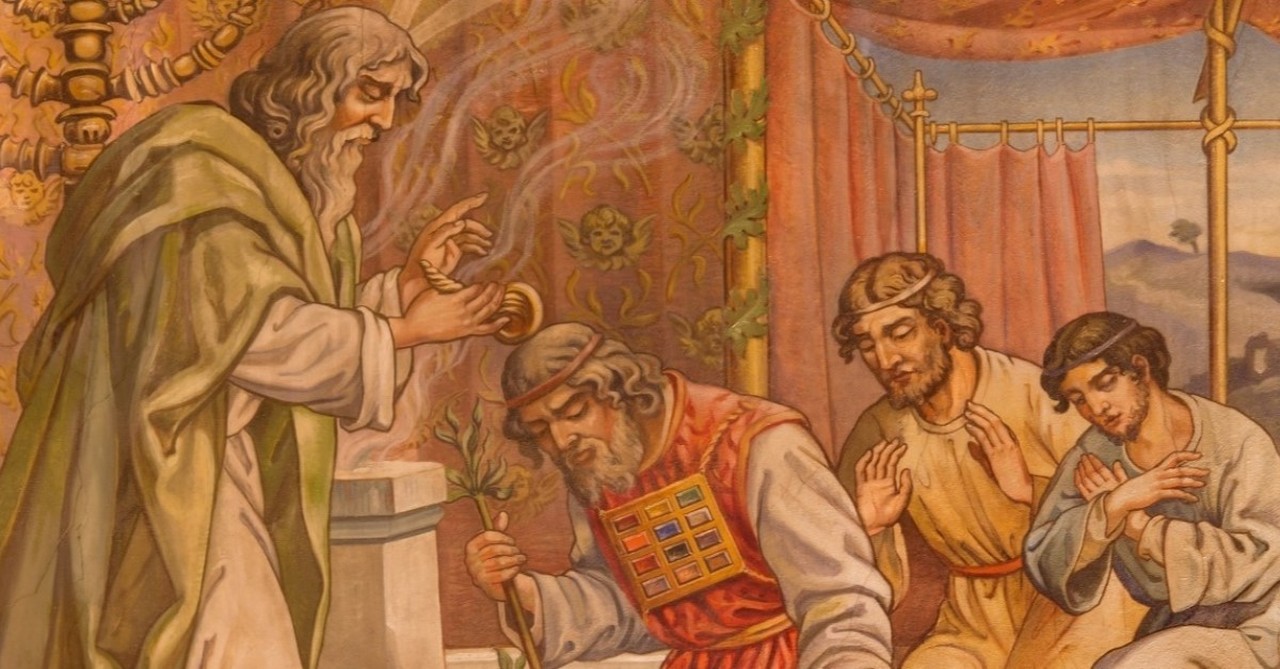
3. The Priests
SLIDE 3 OF 6
As God was setting up the nation of Israel, we see in Exodus-Deuteronomy a unique group of men. God calls out from the lineage of Levi, but especially Aaron, to be priests. Aaron was Moses' brother, and God gave to him the immense privilege of being the representation of the people before God. In Leviticus especially we read how God has detailed instructions for how the priests are to act before God. They were to be holy, set apart, and obedient. In order to be properly represented, they also had to offer blood sacrifices for the themeless.
Unlike the priests of the Old Testament, Jesus was pure, holy, and undefiled. He did not need to offer even one sacrifice to be an intercessor for us. His sacrifice on the cross was not for Himself, but for us. The priest’s job was never done, but on the cross, Jesus cried out, “It is finished.”
Photo Credit: ©Getty Images/sedmak
4. Joshua
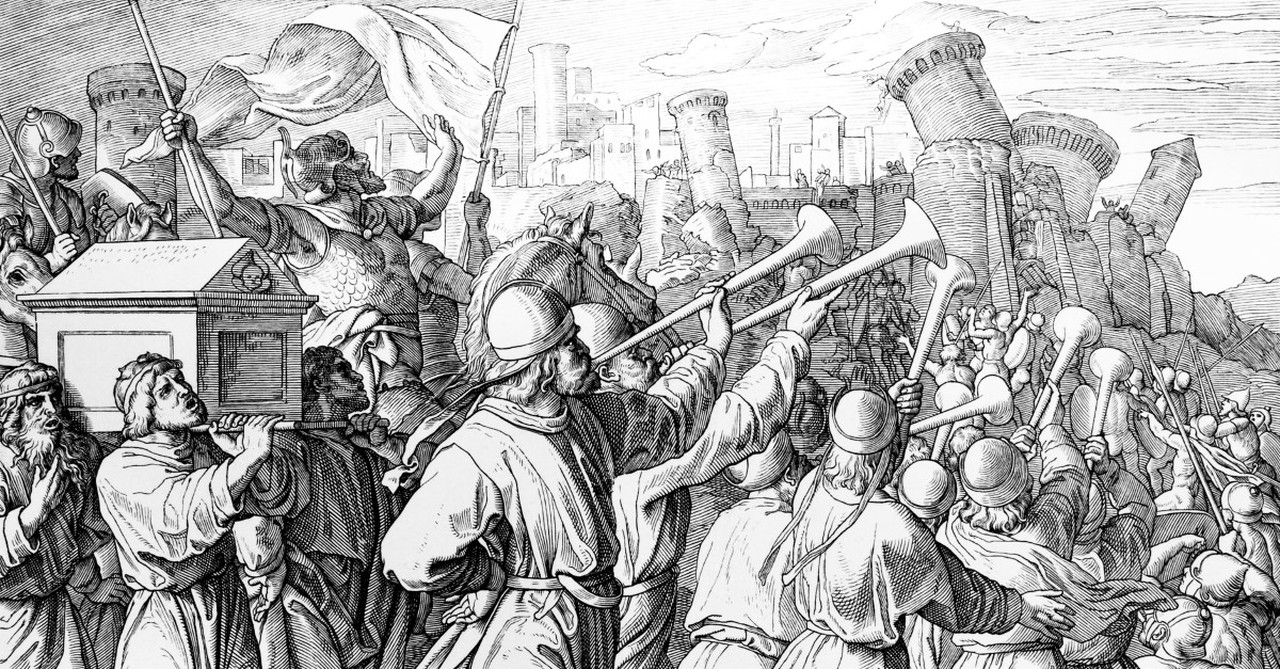
4. Joshua
SLIDE 4 OF 6
After Moses came the warrior and commander Joshua. Although Joshua was not a priest, nor was Joshua a king, his leadership became a way for the people to know what God wanted for them while conquering the Promised Land. In several passages, God speaks to Joshua and commands him (and the people) to not be afraid (Joshua 1:9).
God would go with them and ultimately fulfill God’s promise to Abraham about possessing the land of Canaan. The Hebrew name Joshua and the Greek name Jesus are the same name. They both mean “the LORD is salvation.” Joshua followed God’s law (just like Jesus), but unlike Joshua, Jesus Christ fulfilled God’s law.
Photo Credit: ©GettyImages/gldburger
5. Judges
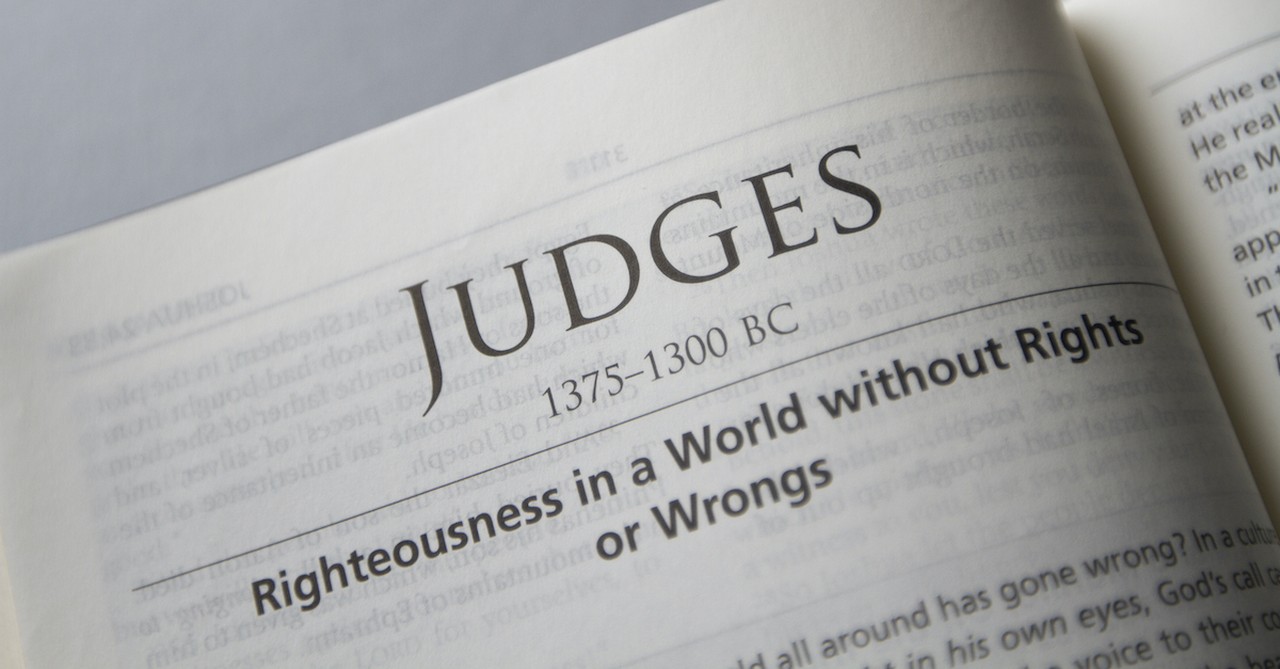
5. Judges
SLIDE 5 OF 6
The book of Judges tells the stories of a mixed group of people. God uses men and women, good and bad, to draw the people back to Himself. An intercessor is one who helps to reconcile, but how are we to be reconciled to God if we don’t know what He wants, says, or requires? The judges spoke for God. The judges also helped turn the people back to God.
They were God’s mouthpiece, but also they fought battles, conquered enemies, and brought rest to the land. They were used by God as a way for the people to figure out what God wanted for them. They were God’s choice for intercessor during that time. They still were only “shadows” of Jesus because, ultimately, only Jesus could bring true victory, speak the very words of God, and provide rest for us today. Because of Jesus' work on the cross, we can enter God’s rest when we die. Heaven is waiting, the ultimate Promised Land.
Photo Credit: ©Sparrowstock
6. Prophets
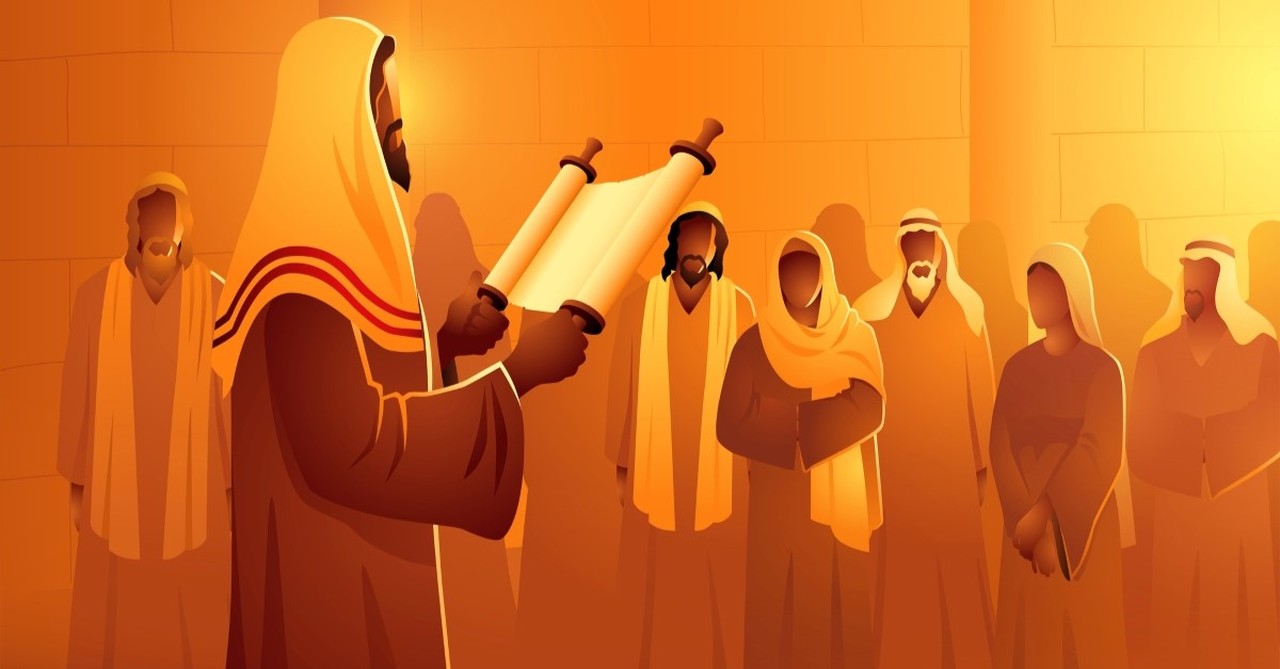
6. Prophets
SLIDE 6 OF 6
The prophets were God’s mouthpiece, the most often in the Old Testament. These men lived from all the way back to the time of Job to the last prophet, John the Baptist, in the New Testament. We have the names of several of God’s prophets but also many prophets are not named. There are books written by prophets that make up the majority of our Old Testament. God tells Ezekiel in Ezekiel 2:7, “You must speak my words to them” (ESV). Peter speaks about the prophets of the Old Testament here:
“No prophecy of Scripture came about by the prophet’s own interpretation of things. For prophecy never had its origin in the human will, but prophets, though human, spoke from God as they were carried along by the Holy Spirit.” (2 Peter 1:20-21 ESV)
God used the prophets to proclaim mainly judgment, and in Christ, we do not see the work of the prophet. Many people called Jesus a prophet, but in Matthew 16:13-20 Jesus asks His disciples who they think He is. It is revealed in this passage that Jesus was not a prophet, but the actual Son of God, God Himself.
As great as these men were, Jesus is the perfect mediator. The book of Hebrews was written to show us how Jesus is better than prophets, priests, or kings. Jesus is better than Moses and David. Although these were great men whom God used, they were only given to us as examples. Jesus is the one we should worship and admire as true mediator.
“Therefore he is able to save completely those who come to God through him, because he always lives to intercede for them.” - Hebrews 7:25 (ESV)
Photo Credit: © Getty Images/ rudall30

Originally published February 25, 2025.







